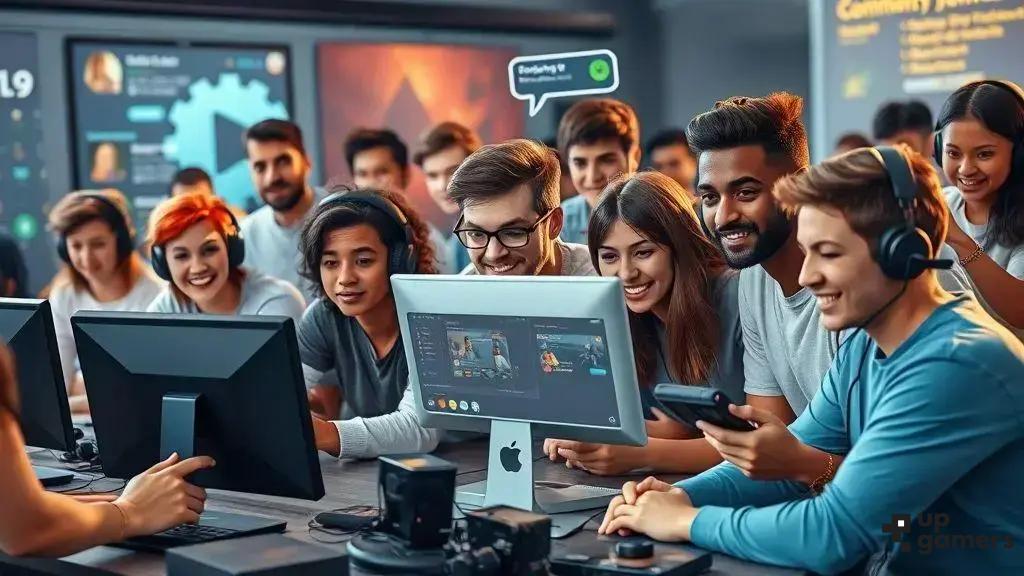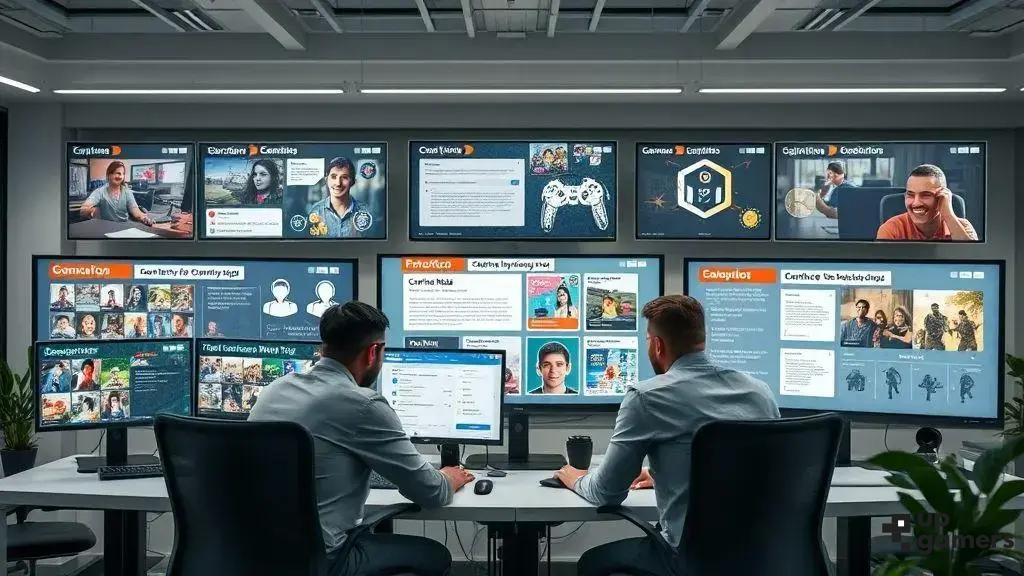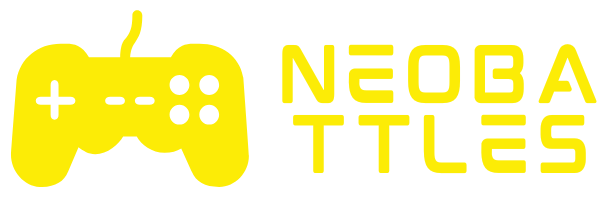Toxicity in online games is harmful behavior like harassment and cheating, and communities fight back through clear rules, active moderation, AI tools, and collaboration with developers to create safer, respectful gaming environments.
Toxicity in online games: how communities are fighting back is a story many gamers know too well. Have you ever wondered how players and developers join forces to push back against negativity? This article dives into the ways communities tackle toxic behavior and what it means for your gaming experience.
understanding toxicity in online games
Toxicity in online games refers to negative behaviors such as harassment, flaming, and cheating that harm the gaming experience. It can take many forms including verbal abuse, griefing, and unfair play, which often lead to frustration and exclusion.
Common Types of Toxic Behavior
Verbal abuse includes insults, threats, and hate speech directed at players. Griefing happens when players deliberately disrupt others’ gameplay. Cheating undermines fair competition, causing distrust among players.
Why Toxicity Persists
Many factors contribute to toxicity, such as anonymity, competitive pressure, and lack of consequences. The online environment can sometimes breed impulsive reactions because players feel detached from real-world accountability.
The Impact on Players and Communities
Toxic behavior can drive players away, lowering community engagement and reducing diversity. It also affects mental health, causing stress and discouragement especially in younger or more vulnerable players.
Understanding toxicity is the first step to building healthier, more inclusive gaming spaces where all players can enjoy and thrive.
how gaming communities organize against harassment

Gaming communities combat harassment by creating clear rules and encouraging respectful behavior. Many groups develop codes of conduct that set standards for player interaction, helping to reduce toxic incidents.
Community Moderation and Reporting
Active moderation teams monitor chats, forums, and gameplay to quickly address harmful actions. Reporting systems allow players to flag abuse, ensuring timely responses and accountability.
Support Networks and Awareness
Communities often build support groups where victims of harassment can share experiences and find help. Campaigns and workshops raise awareness about toxicity’s impact and promote positive behavior.
Collaboration Between Players and Developers
Players and developers sometimes work together to create safer spaces by sharing feedback and improving game features. This includes better moderation tools and automatic detection of toxic language.
Through these efforts, gaming communities foster inclusive environments where players feel respected and motivated to engage positively.
tools and technologies to combat toxic behavior
Several tools and technologies have been developed to help combat toxic behavior in online games. These solutions assist both players and developers in creating a safer gaming environment.
Automatic Chat Moderation
Using artificial intelligence, chat moderation systems can detect offensive language, hate speech, and bullying in real-time. These tools flag or mute inappropriate messages before they affect other players.
Behavior Tracking and Reporting Systems
Many games include integrated reporting features where players can report toxic behavior easily. Advanced analytics track patterns of misconduct to identify repeat offenders and enforce penalties.
Player Reputation Systems
Reputation or feedback systems allow players to rate each other’s behavior. Those with consistently positive feedback receive rewards, while toxic players face restrictions or bans.
Community-driven Moderation
Some platforms empower trusted community members as moderators to oversee player interactions and address issues quickly, blending technology with human judgment effectively.
These tools together form a robust framework to reduce toxicity and promote respectful play within online games.
the role of developers in fostering positive environments

Game developers play a critical role in fostering positive environments by designing features that discourage toxic behavior and promote respect. Their decisions impact player interaction and overall community health.
Implementing Effective Policies
Developers create and enforce codes of conduct that set clear expectations for player behavior. They also establish penalty systems to address violations, such as temporary bans or chat restrictions.
Building Tools for Moderation
Providing robust moderation tools enables game administrators and community moderators to manage toxic situations quickly. Features like automated chat filters and player reporting systems help maintain a safe space.
Promoting Positive Interactions
Developers encourage positive behavior through reward systems that highlight cooperation, teamwork, and sportsmanship. This can include in-game achievements or recognition badges.
Engaging With the Community
Open communication channels allow developers to listen to player feedback and adjust policies or features accordingly. This collaboration helps build trust and a shared commitment to respect.
By prioritizing these efforts, developers shape online games into welcoming spaces where players can enjoy the experience without fear of toxicity.
success stories and lessons from the front lines
Many communities and developers have successfully reduced toxicity by working together and applying innovative strategies. These success stories provide valuable lessons for others aiming to improve gaming environments.
Community-Led Initiatives
Groups like online forums and Discord servers have created safe spaces where players hold each other accountable. They organize campaigns promoting kindness and respect, demonstrating how grassroots efforts can change culture.
Developer Interventions
Games such as “Overwatch” and “Fortnite” introduced strict reporting and penalty systems, along with rewards for positive behavior. These games showed that balanced enforcement combined with positive incentives can effectively reduce toxic conduct.
Technological Innovations
AI-powered moderation tools have helped detect and respond to harmful behavior in real-time. For example, some games use voice recognition technology to flag abusive language and act immediately, reducing the impact on victims.
Lessons Learned
Success depends on consistent communication, community involvement, and transparent policies. Trust builds when players see that reports are taken seriously and that the game environment prioritizes respect.
These examples highlight that fighting toxicity is an ongoing effort that benefits immensely from cooperation between players and developers.
Taking steps toward healthier online gaming communities
Fighting toxicity in online games requires the combined efforts of players, communities, and developers. By understanding the problem, using the right tools, and working together, it’s possible to create safer and more enjoyable gaming spaces for everyone.
Success stories show that clear rules, active moderation, and positive incentives make a difference. Staying engaged and supporting respectful behavior helps ensure that online games become welcoming places where players can have fun and connect.
Remember, every player can contribute to building a better gaming culture, making the experience richer and more rewarding for all.
FAQ – Toxicity in Online Games: How Communities Are Fighting Back
What is toxicity in online games?
Toxicity refers to negative behaviors like harassment, cheating, and verbal abuse that harm the gaming experience.
How do gaming communities help reduce toxicity?
Communities create rules, develop support networks, and use moderation to encourage respectful behavior and address harassment.
What tools do developers use to combat toxic behavior?
Developers use AI-powered chat moderation, reporting systems, reputation tracking, and community moderators to manage toxic conduct.
Why is the role of developers important in fostering positive environments?
Developers design game features, enforce policies, build moderation tools, and promote positive interactions to ensure a safe and welcoming space.
Can technology like AI really reduce toxicity in games?
Yes, AI can detect offensive language and behaviors in real-time to prevent harm and maintain a better player experience.
What lessons have been learned from successful efforts against toxicity?
Consistent communication, community involvement, clear policies, and a balance of enforcement and rewards are key to reducing toxicity effectively.




